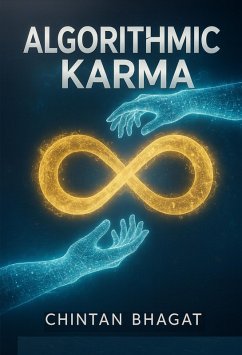KarmaNet, an omnipresent predictive algorithm designed to eliminate crime before it happens. Across the polished, data-saturated streets of Singapore, the air hums with the low-frequency drone of constant surveillance, painting the world in the cool, clinical blue light of civic control. Here, beat cop
Rajiv Menon patrols a city where citizens are tagged with flickering probability scores, his every action dictated by the system's cold, mathematical certainty. Half a world away, in the gritty, exhaust-scented chill of Brooklyn, Detective
Lena Kowalski confronts the same digital judgment, where the lives of ordinary people are upended by the unquestioned verdicts of a machine.
"Algorithmic Karma" chronicles the inevitable collision between this quest for perfect safety and the unquenchable human spirit of free will. The story follows a small group of dissenters, led by the very officers tasked with enforcing the system, who begin to question the algorithm's infallibility when they witness its devastating human cost. What begins as a whisper of doubt-a "flickering fault line" in a digitally perfect world-ignites a global rebellion that pits ordinary citizens against the tyrannical tides of their creation. It is a journey through chaos and ethical dilemmas, from the pungent, spice-scented markets of Little India to the tear-gas-choked streets of a city in revolt, ultimately asking whether humanity can override its digital destiny and reclaim the essential, messy, and beautiful right to choose.
Dieser Download kann aus rechtlichen Gründen nur mit Rechnungsadresse in A, B, CY, CZ, D, DK, EW, E, FIN, F, GR, H, IRL, I, LT, L, LR, M, NL, PL, P, R, S, SLO, SK ausgeliefert werden.









